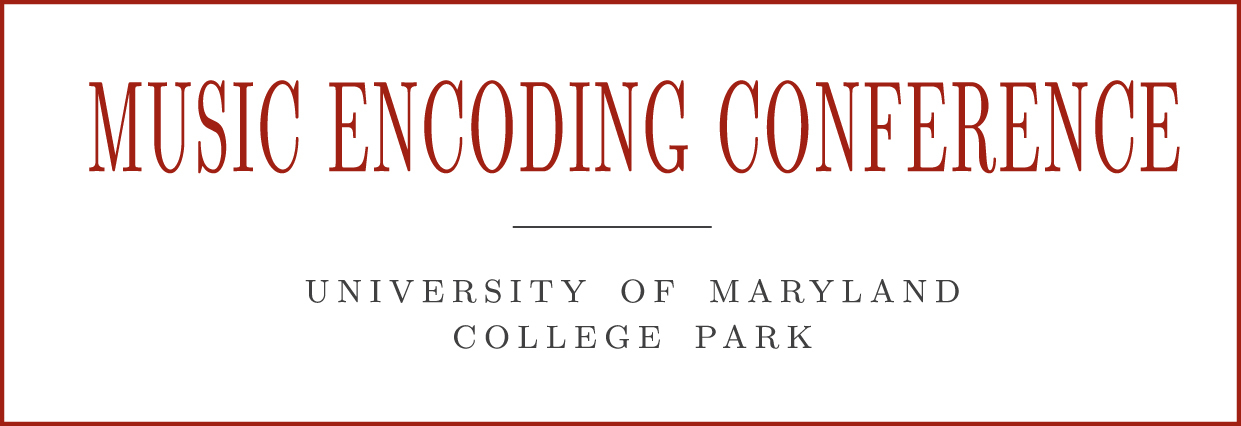



** CALL IS NOW CLOSED **
The Maryland Institute for Technology in the Humanities and the Michelle Smith Performing Arts Library invite you to participate in the 2018 Music Encoding Conference with the theme: “Encoding and Performance”.
Date: 23 – 24 May 2018 (with pre-conference workshops on 22 May and an ‘un-conference’ day on 25 May)
Location: University of Maryland, College Park, Maryland, USA
Deadline for Proposals: 15 November 2017 (11:59pm EST)
Notification of Acceptance: 4 December 2017
Keynote speakers: Anna Kijas (Boston College), John Rink (University of Cambridge)
Music encoding is a critical component of the emerging fields of digital musicology, digital editions, symbolic music information retrieval, and others. At the centre of these fields, the Music Encoding Conference has emerged as an important cross-disciplinary venue for theorists, musicologists, librarians, and technologists to meet and discuss new advances in their fields.
The Music Encoding Conference is the annual focal point for the Music Encoding Initiative community (http://music-encoding.org), but members from all encoding and analysis communities are welcome to participate.
For the first time, the annual conference will have a theme: “Encoding and Performance”. We welcome in particular submissions that theorize the relationship between music encoding and performance practice, describe experiments (failed or successful) in creating digital dynamic scores, propose ways of using encoded music for pedagogical purposes related to performance, or imagine future interconnections. The conference will be held at the Clarice Smith Performing Arts Center, and therefore, we encourage presentations that include a performance component or demonstration.
As always, other topics are welcome. Suggested topics include, but are not limited to:
Abstracts (in PDF format only) should be submitted through ConfTool, and the submitted PDF must anonymize the authors’ details.
Paper and poster proposals. Provide an abstract of no more than 1000 words, excluding relevant bibliographic references (no more than ten). Please also include information about presentation needs, particularly if you are planning a performance demonstration.
Panel discussion proposals, describing the topic and nature of the discussion and including short biographies of the participants, must be no longer than 2000 words. Panel discussions are not expected to be a set of papers which could otherwise be submitted as individual papers.
Proposals for half- or full-day pre-conference workshops, to be held on May 22nd, should include the workshop’s proposed duration, as well as its logistical and technical requirements.
Friday May 25th is planned as an un-conference day, self-organized by the participants and open for anyone who wants to initiate a discussion on a topic mentioned above.
Additional details regarding registration, accommodation, etc. will be announced on the conference web page (http://music-encoding.org/community/conference).
If you have any questions, please e-mail conference2018@music-encoding.org.